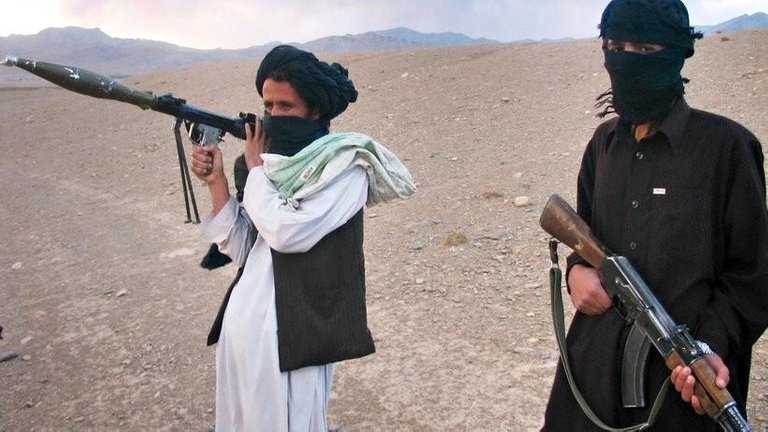
On December 2016, a news surfaced when one of the two suicide bombers in Quetta, Balochistan, outside a church blew himself up killing 9 and injuring over 50. Another news was circulating in August, 2016, when terrorists attacked a hospital in Quetta, Balochistan, killing 70 and injuring over 130. Several other such terrorist attacks have been happening throughout Balochistan recently.
Another recent news, rather absurd that has been circulating online is about a ban on the styling of one's beard in a city in Balochistan, authorities of the area issued an order prohibiting barbers from the shaping of beards in any fashionable way which doesn't follow the Islamic Sunnah.
To understand these issue, we must understand the balochi culture and its history, and to understand the Baloch history, we must know that there are no written historical records, but instead, the history of Balochistan has been conserved through music and poems for hundreds of years, which have been told down through generations.
Baloch people take pride in calling themselves the most secular and liberal people in Pakistan. There was never any concept of sectarian violence in Balochistan before the late 80s. In 1758 A.D, when The Khan of Baloch, Mir Naseer Khan Noori forced the ruler of Kech, Shey Omer Gichki to renege from his original Zikri sectarian faith to become a believer of Hanafi doctrine of Islam, this act antagonized the people of Kech(majority of whom were Muslims of Sunni sect), who were not ready to accept a ruler who changed his faith under duress. Instead, they declared his brother Shugrullah Gichki as their chief.
Another event is from 1947 when the partition plans of Pakistan and India came forward, it wreaked havoc throughtout the subcontinent, Hindus and Muslims were being massacred all over the newly formed countries - in Pakistan the Baloch people are known to offer safe sanctuary to Hindu minorities and since then they have been living and practicing their religion in Balochistan without any fear.
So, where did we go wrong? In the 1960s and early 1970s, Balochistan was the breeding ground of leftist politics, majority of the educated Baloch at the time were oriented to the left, and took an active role in politics, forming the provincial government in Balochistan under the platform of the National Awami Party (NAP).
This was soon to change after the arrival of Zia ul Haq who became the President of Pakistan in 1978 after declaring martial law in 1977 dismissing the Bhutto's PPP government. Zia ul Haq is also known for declaring the infamous hudood ordinance in 1979 which changed the face of politics in Pakistan forever.
General Zia’s reign proved to be disastrous for the politics of Balochistan, where religious forces were encouraged throughout his rule. According to Niamat Gichki, a Baloch author,
“During the days of Zia, in Balochistan, for the first time, different ideas were sponsored against other sects in Balochistan, particularly Zikri Baloch. Annually, religious clerics would go to Turbat for functions like “Khathme Nabuwwat” (Finality of the Prophethood).... Basically, it was used for election tactics because in Balochistan’s Makran division nationalists were winning. That was why the political parties and government of Islamabad thought that nationalists were winning with the support of Zikris. So, by cutting their relations with Zikri Baloch, they were creating rifts by weakening the strength of Baloch nationalists so that the nationalists would lose. They continued to do that, and they succeeded to some extent to break this bond between them. They also bribed the Zikri sects of Muslims. But it was short-lived.”
General Zia is also famous for bringing in the mullah-ism in Balochistan that we see today. For the first time in history, the zikri community were facing the wrath of religious fundamentalist; who also tried to attack them physically in the 1990s but were resisted by the baloch nationlist. The extremists failed in their campaign to pit the baloch people against one another; one reason why they failed is because Makran and its adjoining areas, where Zikri Baloch are predominantly populated and their sacred religious places are located, are considered to be traditionally secular areas with high rates of literacy.
Later the Afghan war also had drastics affects on Balochistan, where foreign forces and Pakistan's establishment are accused for the training and funding of the Talibans and spreading Islamic extremism, to manipulate the people to fight the Soviet forces in Afghanistan; since Balochistan is bordered with Afghanistan, the presence of Taliban in Balochistan was inevitable. In Balochistan’s northern areas, predominantly populated by local Pashtuns, contain the seeds of religious extremism. That extremism is now said to be penetrating ideologically and territorially into other Baloch areas.
Baloch nationalists, claim that the sectarian attacks have been used in the last fifteen years as a way to counter the Baloch nationalist movement by promoting Salafi Islam and detracting the baloch youth from nationalist movements.
The Baloch nationalists have been claiming that Pakistani military is systematically trying to spread the network of religious extremists in Balochistan and military is providing them safe havens under a planned agenda. These groups are not only spreading religious fanaticism in the Baloch society but they are also involved in abduction and killing of secular Baloch nationalist activists.
It can be safely concluded that baloch people as in whole, regardless of their view on Baloch nationalism are against religious extremism and rather want a secular and liberal Balochistan, and the only way to achieve that is to unite against religious extremism, individually, we would only be devoured by this heinous ideology